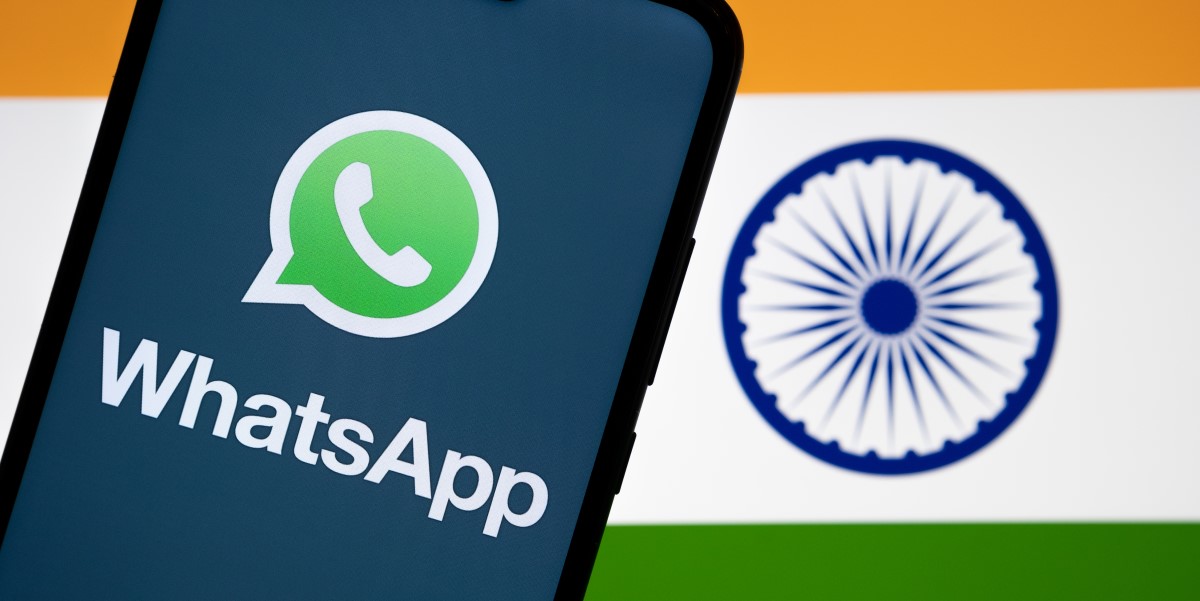India Slaps Meta With Five-year Ban On Sharing Info From WhatsApp For Ads

India's Competition Commission has slapped Meta with a five-year ban on using info collected from WhatsApp to help with advertising on its other platforms.
The regulator (ICC) on Monday explained its decision, referring back to a February 2021 change to WhatsApp's privacy policies that the Commission argued "expanded scope of data collection as well as mandatory data sharing with Meta companies."
Failure to agree to the changes would have meant quitting WhatsApp.
Indian citizens were of course free to do so. But the Commission wondered if it was practical to quit WhatsApp, and therefore whether Meta enjoys market dominance.
The ICC decided Meta leads two markets in India: over-the-top messaging apps, and online display advertising.
That position, the ICC found, meant that "Given the network effects and lack of effective alternatives, the 2021 Update forces [WhatsApp] users to comply, undermining their autonomy, and constitutes an abuse of Meta's dominant position."
The regulator also found that sharing of WhatsApp users' data between Meta subsidiaries for purposes other than providing WhatsApp Service "creates an entry barrier for the rivals of Meta, and thus results in denial of market access in the display advertisement market."
- India, Nvidia, discuss jointly developed AI chip
- Weekends were a mistake, says Infosys co-founder Narayama Murthy
- Google Cloud to help India export its Digital Public Infrastructure
- India scores its first fab, and it looks like it was at Japan's expense
The ICC has ordered several remedies.
One is a fine of ₹213.14 crore – about $25 million and therefore back-of-the-sofa money for Meta.
A more substantial requirement means Meta can no longer make acceptance of its privacy policy a condition for users to use WhatsApp in India. The Register imagines that order creates the potential for a substantial population of users to opt out of some data collection.
Meta will have time to learn to live with that sort of thing. Another sanction is a five-year ban on sharing user data collected on WhatsApp with other parts of Meta for advertising purposes.
Another element of the order requires future versions of WhatsApp legalese to "include a detailed explanation of the user data shared with other Meta Companies or Meta Company Products" that specifies "the purpose of data sharing, linking each type of data to its corresponding purpose."
India is also pursuing multiple antitrust cases against Google, and seems to be nearly always beefing with other social media platforms over content moderation or data harvesting practices – even as the nation courts tech giants to employ its citizens and bring their manufacturing facilities to its shores. ®
From Chip War To Cloud War: The Next Frontier In Global Tech Competition
The global chip war, characterized by intense competition among nations and corporations for supremacy in semiconductor ... Read more
The High Stakes Of Tech Regulation: Security Risks And Market Dynamics
The influence of tech giants in the global economy continues to grow, raising crucial questions about how to balance sec... Read more
The Tyranny Of Instagram Interiors: Why It's Time To Break Free From Algorithm-Driven Aesthetics
Instagram has become a dominant force in shaping interior design trends, offering a seemingly endless stream of inspirat... Read more
The Data Crunch In AI: Strategies For Sustainability
Exploring solutions to the imminent exhaustion of internet data for AI training.As the artificial intelligence (AI) indu... Read more
Google Abandons Four-Year Effort To Remove Cookies From Chrome Browser
After four years of dedicated effort, Google has decided to abandon its plan to remove third-party cookies from its Chro... Read more
LinkedIn Embraces AI And Gamification To Drive User Engagement And Revenue
In an effort to tackle slowing revenue growth and enhance user engagement, LinkedIn is turning to artificial intelligenc... Read more

